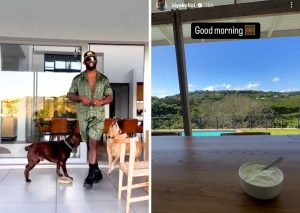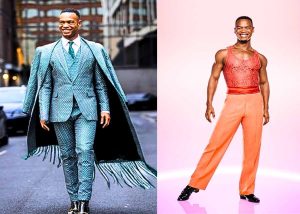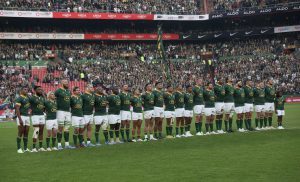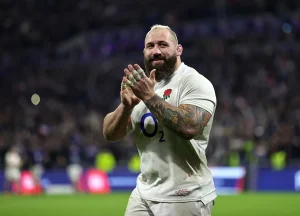The Isima-Obi bridge, by Emeka Obasi
Coach Gottlieb Goller took a gamble when Ndu Isima promised to solidify Julius Berger for the 1982 season. That was a squad that paraded superstars like Martin Eyo, John Orlando, Raymond King and Augustine Fregene.
Goller, a German with some African experience, having led the Hawks of Togo to their first African Nations Cup, in 1972 (he also did in 1984, 1998, 2000 and coached Nigeria briefly) was all ears as Isima marketed players from the Eastern divide, including Anene Nwanolue and Sabinus Nweje. Initially, Christian Obi was not in the picture.
Isima said : “I encouraged Goller to recruit Igbo players to join the Bridge Boys, because of their fighting spirit and promised that he would see the difference. The coach provided flight tickets and some allowance to bring three players, one goalkeeper, a midfielder and a striker.”
Off to Enugu, the player arrived safely. “It was my brother, Okey (Isima) that recommended Christian Obi. I didn’t know him personally. Nweje and Nwanolue, were my team mates, from Christ the King College (CKC), to Morning Star, Onitsha.
“When I returned to Lagos with the trio, Goller was not happy with me. He complained about the height of Obi and Nweje. You know, German coaches like taller players. However, all three players became his favourites within three weeks and I was vindicated,” Isima added.
Obi and Nweje turned out to be key members of the Lagos team after Isima left for the United States in 1982. He would later invite Nwanolue to join him at the University of Alabama Huntsville (UAH).
“I knew what they could bring to Berger. Obi and Nweje became prominent and captained the team at different times. Now, the three are dead. I was so sad when I received the news of Obi’s death in a crash recently.”
Isima wondered why players who distinguished themselves for Nigeria ended up in painful passages at home. He mentioned former Flying Antelope, Nwachukwu (Igaliga) Onyekwelu who served as his mentor in the in United States and University of Alabama team mate, Idika (Pele) Aku
“Many distinguished men and women, have lost their lives prematurely. It is sad and disturbing. I lost Igaliga, my mentor (he died in a traffic accident on the Enugu – Awka Highway in February 1987), I lost my friend, Pele. I also lost my elder brother, Okey.”
Okey drove Ndu to the Murtala Mohammed Airport, in 1982, accompanied by Stephen Keshi and Muda Lawal. There was plan to recruit Obi, Nweje and Nwanolue for University of Alabama team, Chargers, but “only Nwanolue’s request was successful.”
The Chargers had enjoyed much Nigerian presence. Former Vasco Da Gama, Enugu and Enyimba keeper, Ahamefula Umelo was there. There were Godwin (Mature) Gbenimacho, Ignatius (IG Buddy) Ilechukwu and Sam (Achimota) Onyeaka, all ex – Rangers. Mike Igbeka and Emmanuel Awaitam, came later.
Ndu Isima played for the Flying Eagles, with Stephen Keshi and that was straight from Asabatex. He had featured for Standard of Jos, after winning gold at the Oluyole 1979 National Sports Festival with the Plateau State Intermediate soccer team, coached by Bitrus Bewarang.
Obi’s exploits began at Nsukka High School (Anglican Grammar School) where he was nicknamed Iron Gate, before Enugu Black Rocks renamed him Mkpuru Igwe (Iron). It was simply because of Obi that St. Theresa’s College (STC) Nsukka began to play second fiddle.
STC had produced Godwin (Pele) Ogbueze, Kenneth (Kendo)Ilodigwe, Damian (Arabi Chocho) Odo, Chukwuma Nwankwo, Moses (Mogambo) Nweke and Paul (Babadoodoo) Agu, all members of the East Central State Academicals team that lifted the Adebajo/ Manuwa Cup in 1971.
Eight years later, in 1979, things were no longer at ease. Obi had a spectacular day when Nsukka High School beat STC ( their goalie, Ken Uzoka was under less bombardment) at the University of Nigeria Nsukka Stadium. STC always had a handy excuse to escape their Principal’s wrath, ‘sir, they used juju’. They ambushed Obi and his team mates at the Post Office and stoned them.
Obi made the Flying Eagles team to the FIFA Under 20 Championships as number two to Aloy Agu. The third goalkeeper, was Uche Ikeogu.The team, with Obi in goal, beat the Soviet Union 3-1 penalties, to claim the bronze medal. The hosts had defeated Nigeria 2-1, in an earlier group game in Minsk.
Brazil stopped the Nigerians in the semifinals. One strange face on the Brazilian side was Tosin. Their keeper, Claudio Taffarel, would beat Nigeria again, at the Seoul Olympics. Two other quality goal tenders at USSR 1985, were Rene Higuita of Columbia and Tunisia’s Chokri El Ouaer.
Iron Gate was also part of the Green Eagles team to the Seoul 1988 Olympic Games, as second choice to David Ngodigha. After the 4-0 bombing by Brazil in the first game, Manfred Hoener went for Obi in the next Games against Australia and Yugoslavia.
Ndu Isima who took Obi to Berger, started as a keeper at Ogidi Boys High School before joining his brother, Okey, at Holy Ghost College, Owerri. The same brother asked him to convert to striker. Obi’s younger brother, Emeka, was a goalie too, at Rangers and later Enyimba.
Holy Ghost College threw up a bunch of stars. Elkanah Onyeali, the first Nigerian to score four goals in an international match, Patrick Ekeji, Johnny Nwadioha, Isima, Gbenimacho, Alphonsus Dike and his brother, Adolphus and Titus Okere. Even Arthur Nzeribe manned the posts for Arugo
The post The Isima-Obi bridge, by Emeka Obasi appeared first on Vanguard News.






